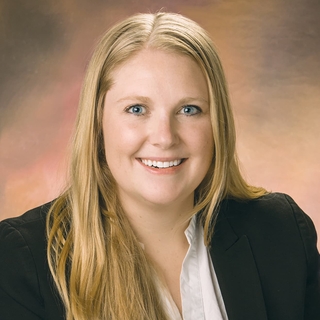Grants play a large role in facilitating research efforts within the Division of Urology at Children’s Hospital of Philadelphia (CHOP). Here, two fellows, Jack Weaver, MD, and Katie Fischer, MD, briefly discuss their research efforts fueled by grant support.
Jack Weaver, MD

I am now in my third year of fellowship and second year of dedicated research. This year, I will be completing my Master’s in Translational Research. As a part of my masters, I will be completing a thesis under Division of Urology attending Dr. Greg Tasian’s mentorship.
My thesis project focuses on applying machine learning to the analysis of video urodynamic studies (VUDS). VUDS is the gold standard for the evaluation of the lower urinary tract in patients with spina bifida to ascertain whether a bladder has safe storage characteristics that will be protective of the kidneys. VUDS studies are detailed and complex, and therefore laborious and sometimes difficult to interpret. Consequently, there is a large amount of variation in the interpretation of these studies. In this research, we apply machine learning (particularly deep learning) to urodynamic tracings and fluoroscopic images, which avoids the need to identify data features of interest prior to analysis. The study tests the hypothesis that machine learning analysis of VUDS data will accurately, reliably, and rapidly predict the risk of hydronephrosis for children with spina bifida.
I have also received a one-year Foerderer grant through CHOP to apply machine learning to the analysis of renal scans in the setting of potential ureteropelvic junction obstruction. Along with the VUDS project, this funded research will ultimately improve outcomes for children with congenital urologic disease
I will also be working with the Center for Applied Genomics. I have received a Thrasher Foundation grant to perform genetic analysis on samples from bladder exstrophy patients, and I am in the final stages of being awarded a Gerber Foundation grant to perform genetic analysis on samples from patients with posterior urethral valves.
Katie Fischer, MD

I’m very excited to have received an AUA Care Foundation Research Scholar Award for the 2021-2022 academic year to work on the further development of machine learning based models using first postnatal ultrasound to help predict the risk of chronic kidney disease progression in children with congenital anomalies of the kidneys and urinary tract.
This grant is sponsored by the Society of Pediatric Urology Sushil Lacy Award and will be completed under the mentorship of Urology attending Dr. Gregory Tasian. I have had the pleasure of working under Dr. Tasian’s mentorship since I was in medical school when I was fortunate enough to work on one of his early studies creating normalized renal parenchymal area growth curves. This research has helped to identify boys with posterior urethral valves who are at increased risk of future development of end-stage renal disease. This early identification helps pediatric urologists to intervene early in order to preserve kidney function in these at-risk boys.
I’m looking forward to the opportunity to spend the year working with him again and building on his lab’s prior work using machine learning based algorithms to harness the predictive power of postnatal ultrasound images. I hope that this grant will be a stepping-stone for me to a career in academic pediatric urology.
Featured in this article
Specialties & Programs
Grants play a large role in facilitating research efforts within the Division of Urology at Children’s Hospital of Philadelphia (CHOP). Here, two fellows, Jack Weaver, MD, and Katie Fischer, MD, briefly discuss their research efforts fueled by grant support.
Jack Weaver, MD

I am now in my third year of fellowship and second year of dedicated research. This year, I will be completing my Master’s in Translational Research. As a part of my masters, I will be completing a thesis under Division of Urology attending Dr. Greg Tasian’s mentorship.
My thesis project focuses on applying machine learning to the analysis of video urodynamic studies (VUDS). VUDS is the gold standard for the evaluation of the lower urinary tract in patients with spina bifida to ascertain whether a bladder has safe storage characteristics that will be protective of the kidneys. VUDS studies are detailed and complex, and therefore laborious and sometimes difficult to interpret. Consequently, there is a large amount of variation in the interpretation of these studies. In this research, we apply machine learning (particularly deep learning) to urodynamic tracings and fluoroscopic images, which avoids the need to identify data features of interest prior to analysis. The study tests the hypothesis that machine learning analysis of VUDS data will accurately, reliably, and rapidly predict the risk of hydronephrosis for children with spina bifida.
I have also received a one-year Foerderer grant through CHOP to apply machine learning to the analysis of renal scans in the setting of potential ureteropelvic junction obstruction. Along with the VUDS project, this funded research will ultimately improve outcomes for children with congenital urologic disease
I will also be working with the Center for Applied Genomics. I have received a Thrasher Foundation grant to perform genetic analysis on samples from bladder exstrophy patients, and I am in the final stages of being awarded a Gerber Foundation grant to perform genetic analysis on samples from patients with posterior urethral valves.
Katie Fischer, MD

I’m very excited to have received an AUA Care Foundation Research Scholar Award for the 2021-2022 academic year to work on the further development of machine learning based models using first postnatal ultrasound to help predict the risk of chronic kidney disease progression in children with congenital anomalies of the kidneys and urinary tract.
This grant is sponsored by the Society of Pediatric Urology Sushil Lacy Award and will be completed under the mentorship of Urology attending Dr. Gregory Tasian. I have had the pleasure of working under Dr. Tasian’s mentorship since I was in medical school when I was fortunate enough to work on one of his early studies creating normalized renal parenchymal area growth curves. This research has helped to identify boys with posterior urethral valves who are at increased risk of future development of end-stage renal disease. This early identification helps pediatric urologists to intervene early in order to preserve kidney function in these at-risk boys.
I’m looking forward to the opportunity to spend the year working with him again and building on his lab’s prior work using machine learning based algorithms to harness the predictive power of postnatal ultrasound images. I hope that this grant will be a stepping-stone for me to a career in academic pediatric urology.
Contact us
Division of Urology